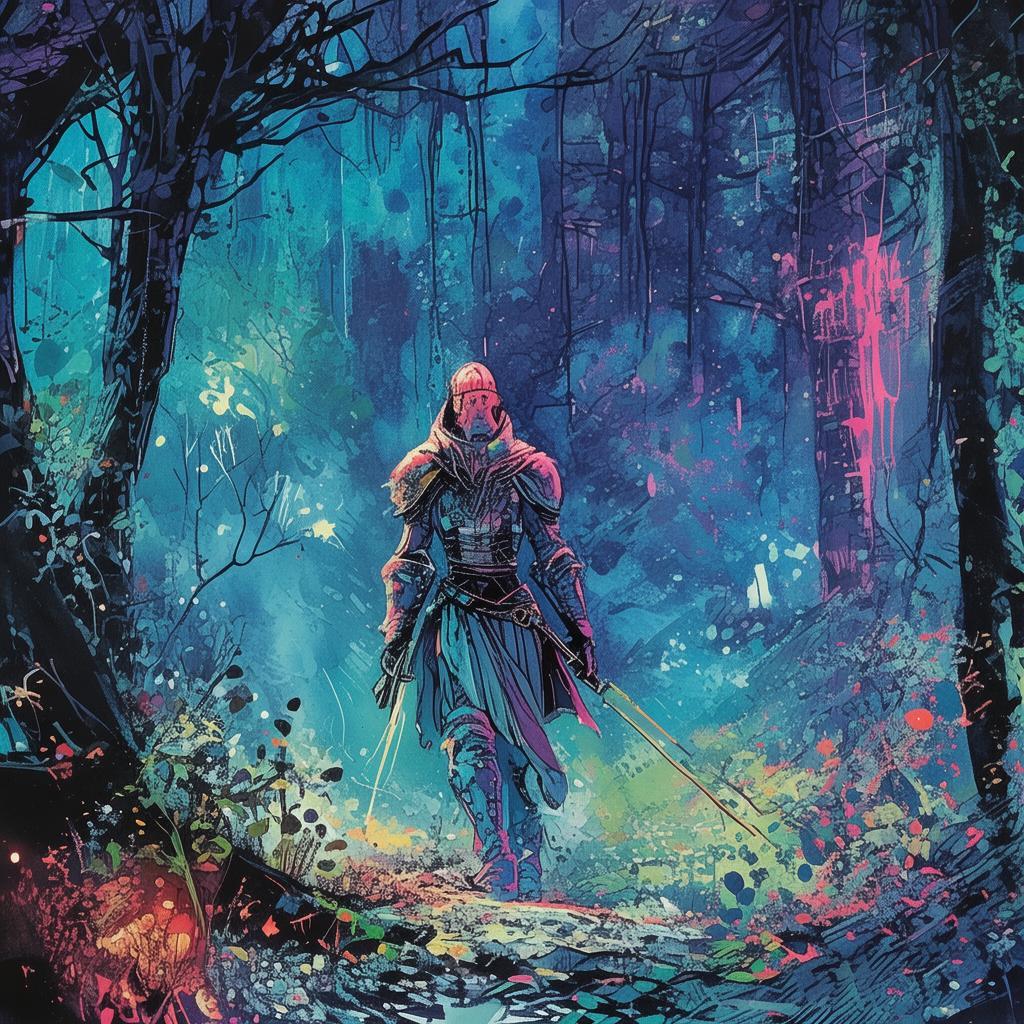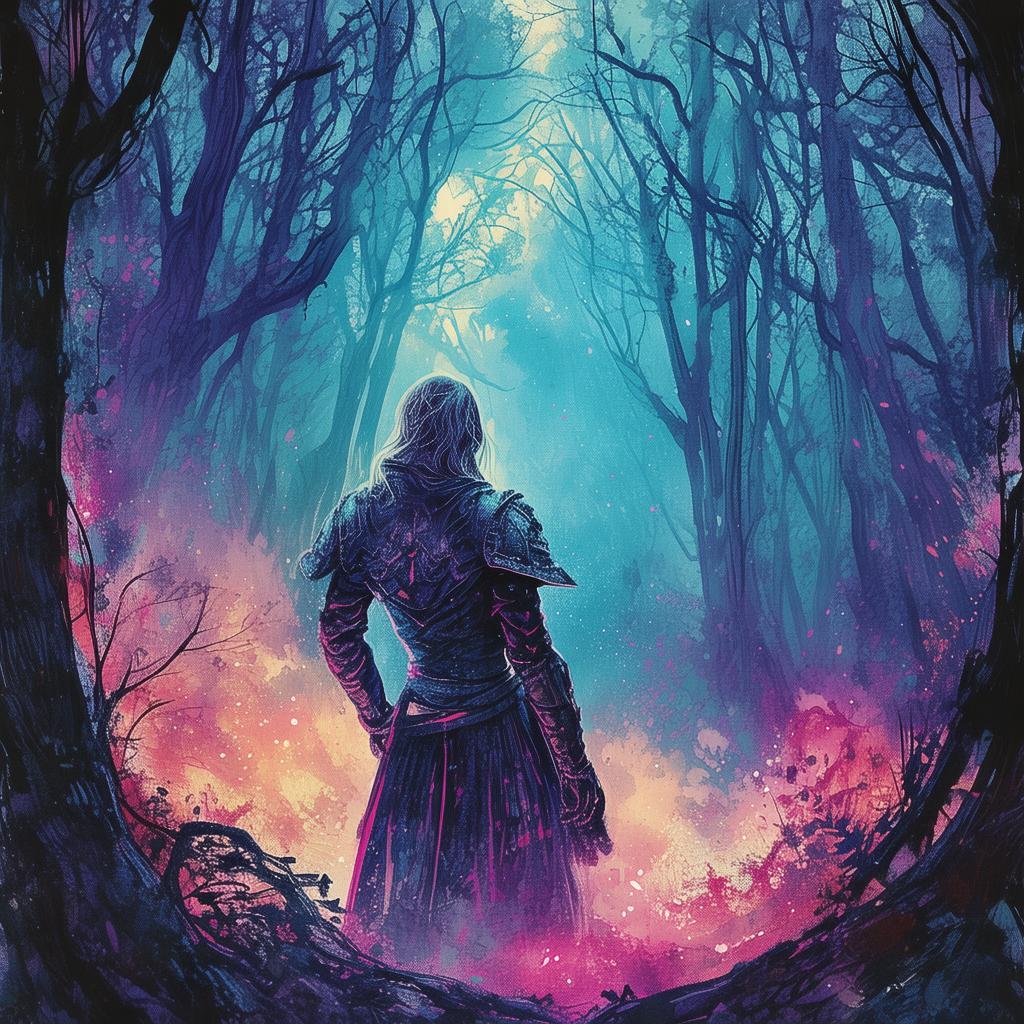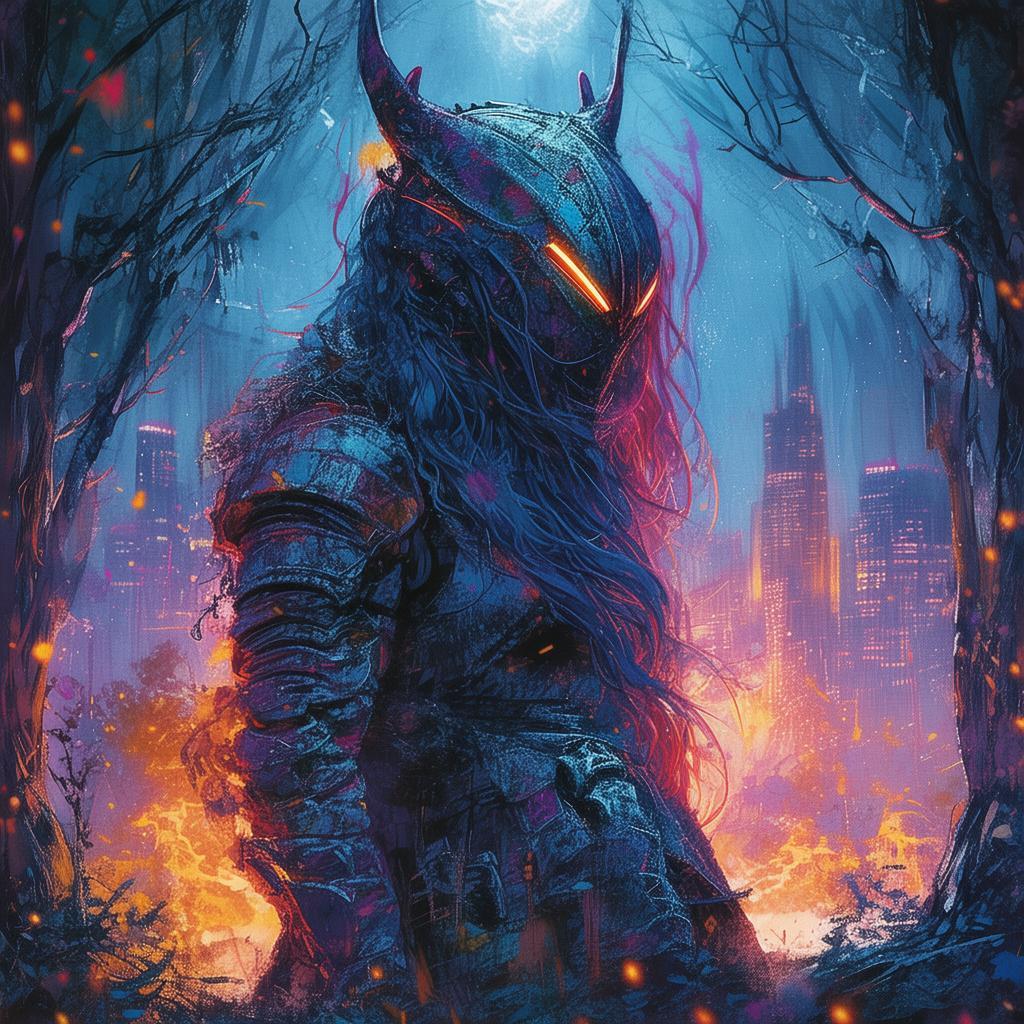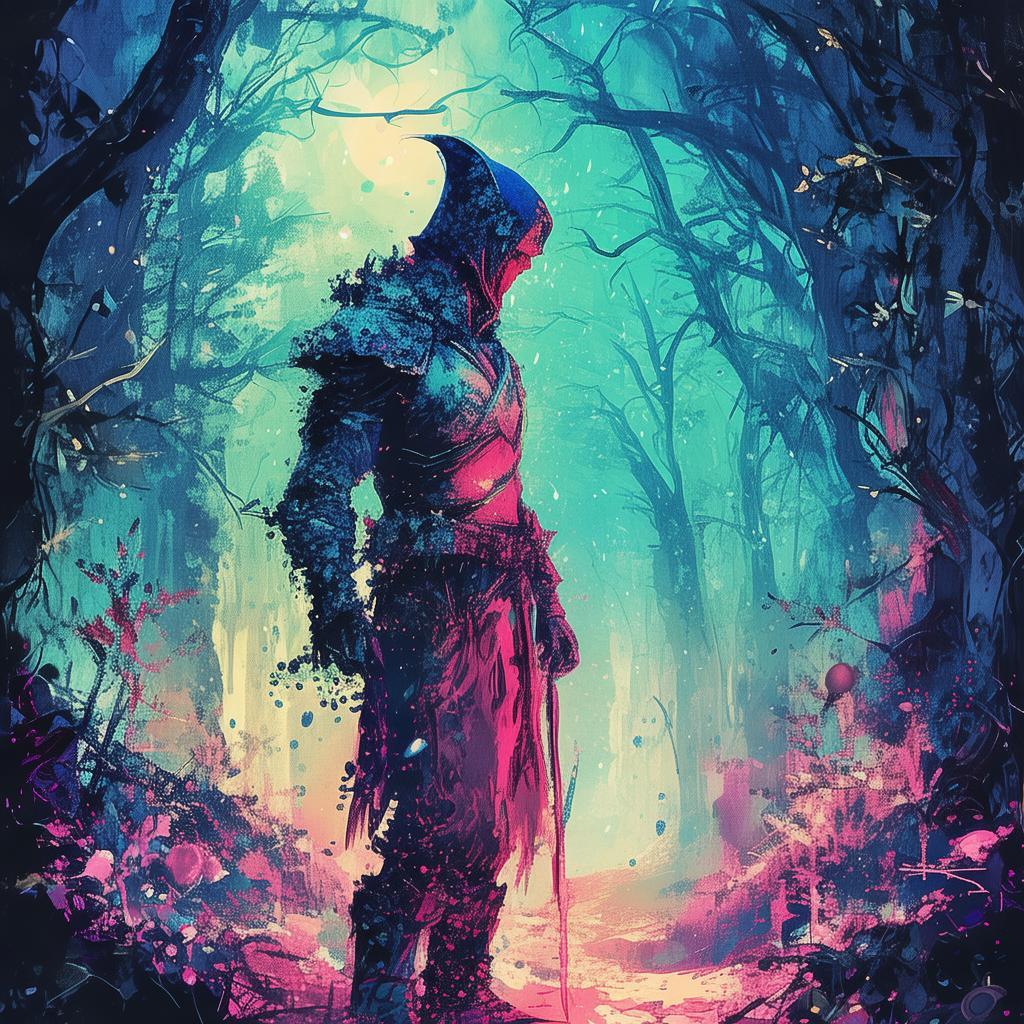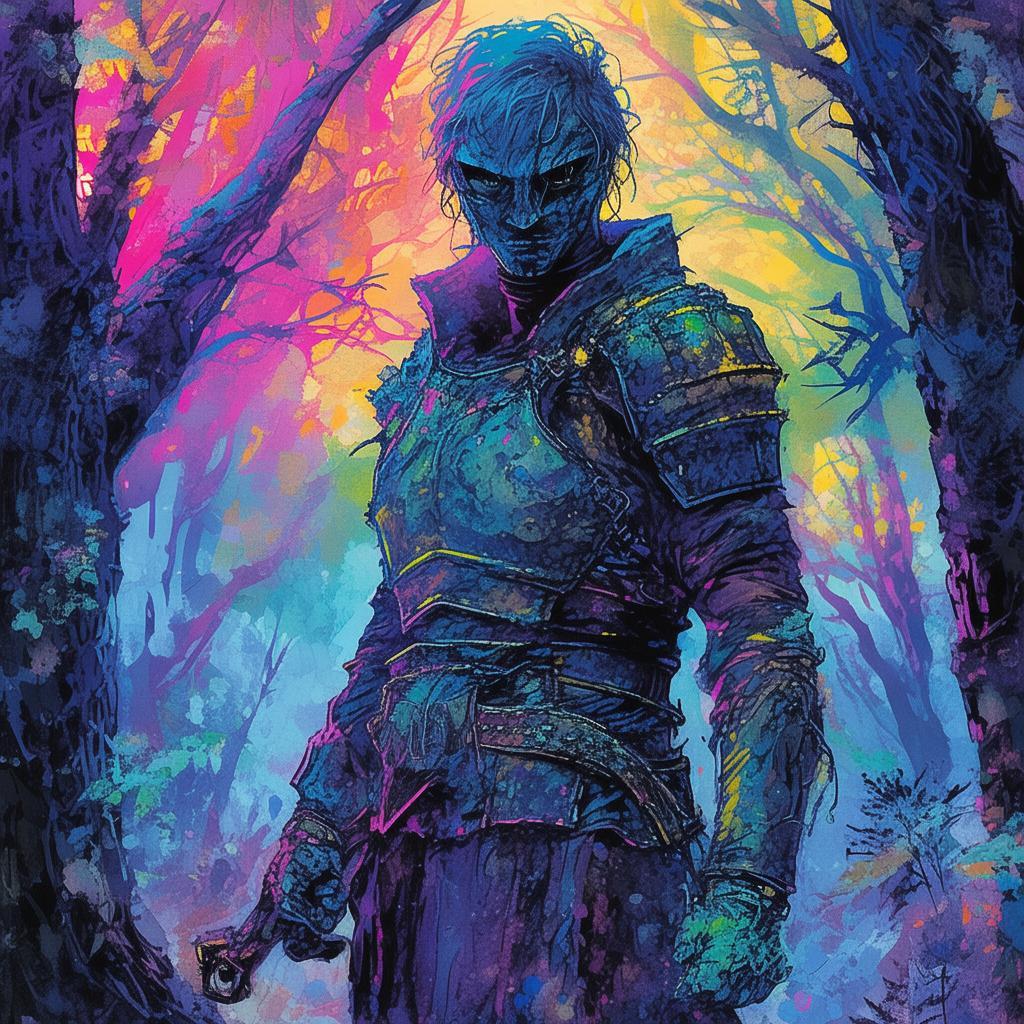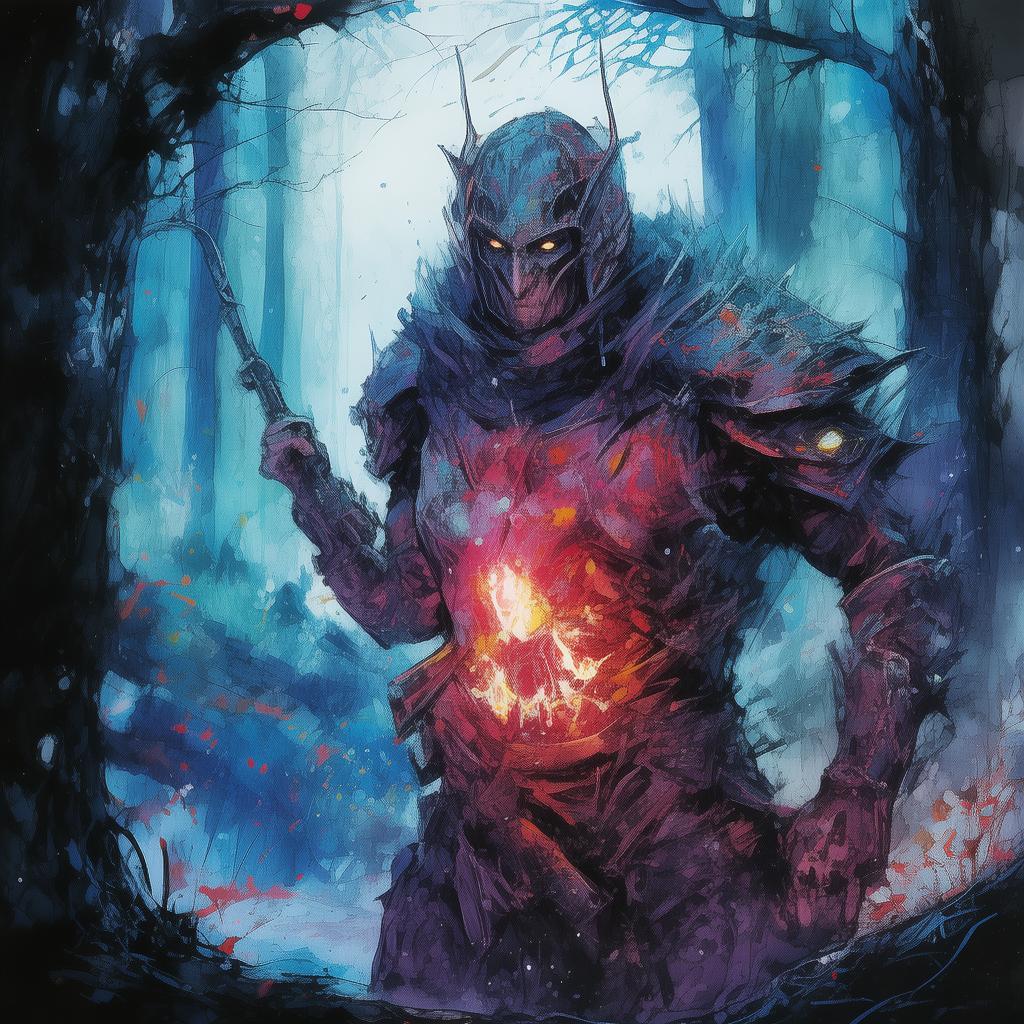The Sinister Symphony of the Harvest Moon
The village of Zhangjiakou lay nestled in the embrace of the Great Wall, a land of stark beauty and ancient secrets. The autumnal nights were painted with the hues of the harvest moon, a beacon that signaled the time for the annual reaping. It was a time of joy and plenty, but for the villagers, it was also a time of dread.
In the heart of the village, an old, weathered sign stood at the entrance, its letters worn away by time. The sign read, "The Crop of Shadows," a cryptic warning that no one dared to ignore. The legend of the Dark Harvest had been passed down through generations, a tale of a reaper who came each autumn to claim the souls of those who had sinned against the land.
This year, as the moon hung low and the air grew crisp, a young woman named Mei found herself in the midst of the village's darkest hour. Mei was a farmer's daughter, known for her gentle spirit and her love for the land that sustained her. But as the harvest neared, she felt an ominous presence among the crops, a shadow that seemed to whisper promises of wealth and power.
Mei's father, a man of simple means, had always been wary of the legend. He had seen the crops wither and the livestock fall ill, and he knew that the land was not to be taken lightly. Yet, as the village's prosperity waned, he found himself facing an impossible choice: to succumb to the allure of the shadow or to protect his family and the land they cherished.
One night, as the harvest moon rose, Mei had a vision. She saw the reaper, a figure cloaked in darkness, his face obscured by a hood, harvesting the souls of the villagers. Mei realized that she must stop him, but how could she, a mere farmer's daughter, stand against such a formidable foe?
Driven by a newfound determination, Mei set out to uncover the truth behind the Dark Harvest. She spoke with the village elder, a man who had seen many seasons pass, and who knew the secrets that lay buried beneath the soil. The elder spoke of an ancient ritual, one that had been forgotten but was now the key to breaking the curse.
As the night of the full moon approached, Mei, her father, and a few of the village's bravest prepared to confront the reaper. They carried with them the symbols of their ancestors, the tools of their trade, and the very essence of their lives. They stood at the edge of the fields, where the crops stood tall and the shadows seemed to dance with a life of their own.
The reaper appeared, his presence felt more than seen. He moved with a grace that belied his grim purpose, and as he approached, Mei felt a chill that ran through her veins. The reaper spoke, his voice a baritone that echoed through the night, "You have sown seeds of greed and deceit. It is time for the harvest."
Mei stepped forward, her heart pounding in her chest. "We have not sown seeds of greed, but of life. Our crops are for the sustenance of our people, not for profit."
The reaper paused, a look of contemplation crossing his face. "You speak the truth, but it is too late. The harvest must be made."
Before the reaper could claim another soul, Mei's father raised his voice, "Not on our watch! We will not let you take what is not yours!"

In a flash, the reaper lunged, but Mei was ready. She had learned the old ritual from the elder, and with a cry of defiance, she cast the symbols into the air, where they ignited with a fierce light. The reaper's form wavered, and then he was gone, leaving behind a trail of darkness that dissipated with the first light of dawn.
The villagers celebrated, but Mei knew that the victory was bittersweet. The reaper had been vanquished, but the land remained watchful. Mei vowed to protect the land and its people, to ensure that the Dark Harvest would never again threaten their peace.
The legend of the Dark Harvest lived on, a cautionary tale that served as a reminder of the importance of respect and harmony with the land. And Mei, the farmer's daughter, became a symbol of hope and courage, a guardian of the harvest moon's eerie glow.
As seasons passed and the harvests continued, the villagers found that the land had returned to its fertile state, and their prosperity returned with it. Mei's legacy lived on, a testament to the power of unity and the enduring spirit of those who dared to stand against the shadows.
✨ Original Statement ✨
All articles published on this website (including but not limited to text, images, videos, and other content) are original or authorized for reposting and are protected by relevant laws. Without the explicit written permission of this website, no individual or organization may copy, modify, repost, or use the content for commercial purposes.
If you need to quote or cooperate, please contact this site for authorization. We reserve the right to pursue legal responsibility for any unauthorized use.
Hereby declared.
